Originally published in German as Demokratie ohne Volk
2011 by Hamburger Edition HIS Verlagsges. mbH, Hamburg, Germany
English edition Catherine Colliot-Thlne and translated by Arianne Dorval
Published by Rowman & Littlefield International Ltd
Unit A, Whitacre Mews, 26-34 Stannary Street, London SE11 4AB
www.rowmaninternational.com
Rowman & Littlefield International Ltd.is an affiliate of Rowman & Littlefield
4501 Forbes Boulevard, Suite 200, Lanham, Maryland 20706, USA
With additional offices in Boulder, New York, Toronto (Canada), and Plymouth (UK)
www.rowman.com
In Partnership with the European Consortium for Political Research
Harbour House, 6-8 Hythe Quay
Colchester, CO2 8JF United Kingdom
www.ecpr.eu
Copyright 2018 by Catherine Colliot-Thlne
All rights reserved . No part of this book may be reproduced in any form or by any electronic or mechanical means, including information storage and retrieval systems, without written permission from the publisher, except by a reviewer who may quote passages in a review.
British Library Cataloguing in Publication Data
A catalogue record for this book is available from the British Library
ISBN: HB 978-1-7855-2262-8
ISBN: Ebook 978-1-7866-0527-6
Library of Congress Cataloging-in-Publication Data
Names: Colliot-Thlne, Catherine, author.
Title: Democracy and subjective rights : democracy without demos / Catherine Colliot-Thlne.
Description: London ; Lanham, Maryland, USA : Rowman & Littlefield International, Ltd, [2017] | Includes bibliographical references and index.
Identifiers: LCCN 2017032345 (print) | LCCN 2017038980 (ebook) | ISBN 9781786605276 (Electronic) | ISBN 9781785522628 (hb : alk. paper) | ISBN 9781786605276 (ebook)
Subjects: LCSH: DemocracyPhilosophy. | Civil rights. | Citizenship. | State, The. | GlobalizationPolitical aspects.
Classification: LCC JC423 (ebook) | LCC JC423 .C653 2017 (print) | DDC 321.8dc23
LC record available at https://lccn.loc.gov/

The paper used in this publication meets the minimum requirements of American National Standard for Information SciencesPermanence of Paper for Printed Library Materials, ANSI/NISO Z39.48-1992.
Printed in the United States of America
Since Hegel, we know that the figures of the subject change with the forms of the community, and that this is especially true of the political subject. The political philosophy of Hegel is to be found not only in Elements of the Philosophy of Right , but also, and perhaps most importantly, in The Phenomenology of Spirit . The latter was Hegels first major political work (although it was also more than that), such that any interpretation of Philosophy of Right that does not rest on a proper reading of The Phenomenology is necessarily reductive. The central problem of Hegelian political thought is not the determination of the relationship between the individual and the state as was assumed by liberal critics, who remained focused on the sacralisation of the state implied in their view, by Hegels famous proposition that the state is the actuality of the ethical Idea. For Hegel, the state is but the superior collective that represents, under the conditions of modern society, the last horizon of the individuals participation in the world of human relations. There had been other collectives before it, some of which (for instance, the Greek polis or the Roman Empire) are clearly identified in The Phenomenology of Spirit . And there were others next to it (families, corporations of civil society, churches, etc.), which, while occupying a subordinate position, contributed for Hegel to determining the identity, or rather, the identities of individuals. The central question of Hegels philosophy is that of the becoming-subject in its various modalities, and the manner in which he addresses this question rests on the assumption that this becoming-subject is intimately linked to the forms of the collectives to which individuals belong i.e., in which they are born, grow, live and die. The subject comes to himself through an experience shaped by a world which is a human world, not the world of an abstract humanity encompassing all humans, living and dead, but a historical world a figure of the spirit that profoundly determines the subjects consciousness in both its cognitive and practical dimensions. This is the key point of Hegels philosophy that the great Hegelian Jean Hyppolite had remarkably grasped. And it is to this truth of Hegelianism that Foucault was alluding, in a manner certainly skewed by the personal journey that had led him to rediscover it, when he concluded a lecture devoted to the hermeneutics of the subject with a remark that must have seemed enigmatic to many of his listeners:
How can what is given as the object of knowledge ( savoir ) connected to the mastery of tekhne , at the same time be the site where the truth of the subject we are appears, or is experienced and fulfilled with difficulty? How can the world, which is given as the object of knowledge ( connaissance ) on the basis of the mastery of tekhne , at the same time be the site where the self as ethical subject of truth appears and is experienced? If this really is the problem of Western philosophyhow can the world be the object of knowledge ( connaissance ) and at the same time the place of the subjects test; how can there be a subject of knowledge ( connaissance ) which takes the world as object through a tekhne , and a subject of self-experience which takes this same world, but in the radically different form of the place of its test?if this really is the challenge of Western philosophy, you will see why The Phenomenology of Mind is the summit of this philosophy.
My aim in the pages to come is not to interpret Hegelian philosophy; neither is it to deploy the two dimensions of experience knowledge and ethics which Foucault rightly considers as inextricably linked in Hegels thought. The political subject alone will hold my interest. If it is not inappropriate to open this book by referring to Hegel, it is because, more than any other philosopher of the modern era, he reflected on the historicity of the figures of the subject while also relating each of them to successive incarnations of the community . Today, democracy is the name given to the ideal political community of which contemporary Western societies are generally agreed to constitute approximate forms. The central aim of this book is to identify the figure of the political subject that corresponds to democracy understood in its modern sense. In apparent continuity with Hegel, and even though he did not view himself as a democrat, I argue that the modern state is the collective that granted this subject his specific traits. Contemporary liberal democracies have more in common with the Hegelian state than liberal interpretations are willing to admit, and the democratic citizen may well recognise in the legal person, the subject of moral action, the economic man of civil society or the citizen of the state the various interdependent aspects of a multilayered The Hegelian inspiration of this book, however, stops here. For if Hegel saw in the state another communitarian form of the collective, the thesis I defend is, on the contrary, that the modern political subject essentially escapes all communitarian assignation. This thesis runs counter not only to Hegels thought, but also to all the theories that extol the virtues of the community of citizens today. It also runs counter to those that, because they are dissatisfied with the social and political reality of contemporary liberal democracies, are concerned with the possibility or impossibility of a new form of community that might meet the latters unfulfilled promises.

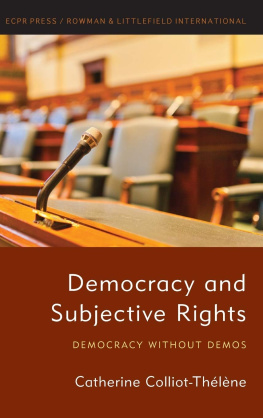

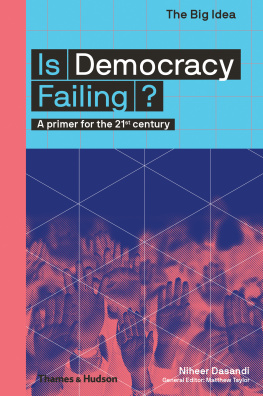
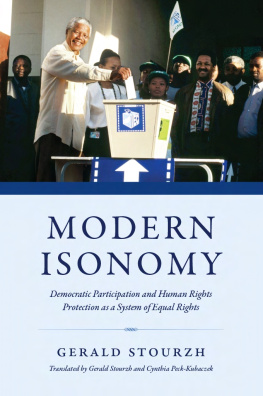


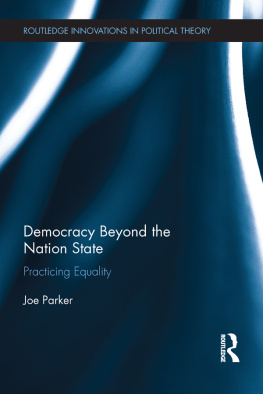
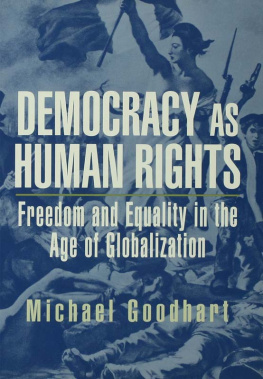
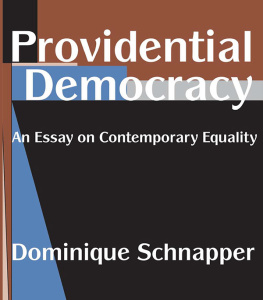
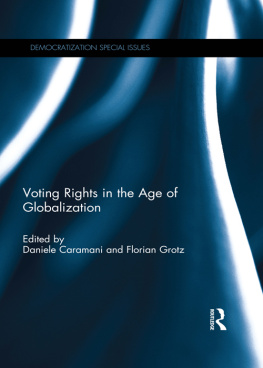

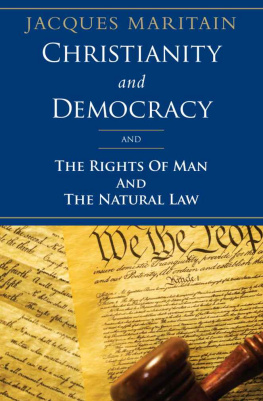


 The paper used in this publication meets the minimum requirements of American National Standard for Information SciencesPermanence of Paper for Printed Library Materials, ANSI/NISO Z39.48-1992.
The paper used in this publication meets the minimum requirements of American National Standard for Information SciencesPermanence of Paper for Printed Library Materials, ANSI/NISO Z39.48-1992.